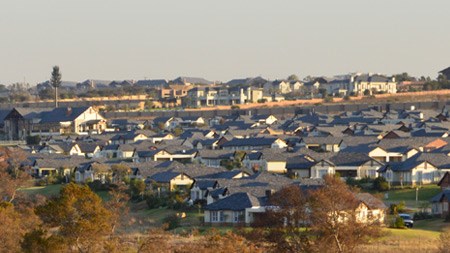There can be little doubt that South Africa is in the grip of a new type of fever.
While other countries may be jaded about the excitement of hosting an epic sporting event, South Africans are not. We are not yet immune to the soccer equivalent of swine flu: World Cup Fever. From the moment South Africa was chosen as the host nation, property owners across the country have been looking for ways to cash in on one of the largest sporting events in the world, but does the experience of other countries show that this is possible? There have been reports of increases in sales of bed and breakfast establishments. People have been urged to rent out their suburban residential properties to visiting fans for what, in local terms, seems to be astronomical amounts. Everyone, it seems, has caught the bug, including those who own property in close proximity to the 10 stadiums which are being built or upgraded around the country. This is confirmed by Dieter Deppisch, the national manager of data analysis with SAPTG, who said that when it was announced that South Africa's bid for the World Cup was successful, investors saw Pampotential in properties within the immediate vicinity of the stadiums and that this helped drive demand. This is hardly surprising, as Athens, Sydney, Atlanta and Barcelona all saw property prices around stadiums out-perform their national markets in the five years leading up to the Olympic games. In the case of Spain, the figure was an astounding 49%.
The stadiums appear to be value magnets: the closer a property is to the new infrastructure, the higher the increase in value. The age-old principal of buy low and sell high may be the key to investors turning a profit in 2010. Stadiums with neighbouring areas of urban decay present bargain opportunities, both in the short term as letting prospects, and in the long term as the entire area benefits from the infrastructural upliftment from Government's commitment to the event. The investor's hope is that these areas will remain attractive to prospective residents long after the final whistle. This point is reiterated by Ronald Ennik, MD of Pam Golding Properties for the Gauteng region.
“The biggest impact of 2010 on the property market in Johannesburg will be the significant increase in the value added to homes in and around the huge infrastructure development that is being put in place for the event.” He said that the R700-million urban renewal programme, which the Johannesburg Developing Agency is rolling out in the Ellis Park precinct adjacent to the huge Coca-Cola Stadium, together with a R170-million upgrade of neighbouring (run-down) Hillbrow and Berea areas not only bodes well for home values in the area, but will also undoubtedly provide a stimulus for homeowners to upgrade and renovate their dwellings in line with the improvement in their environment. SAPTG's research is consistent with this, indicating that properties within 0-2km of Ellis Park showed a 111% increase in value between 2005 and 2008. The increase in value dropped sharply outside the two kilometre radius (63%). However, stadiums which are built outside urban areas have not necessarily had the same effect on surrounding properties. “When it was announced that South Africa's bid for the World Cup was successful,” says Deppisch, “investors saw potential in properties in the immediate vicinity of the stadiums and this helped drive demand. Many of these investors have seen significant returns upon selling during 2008. It should be noted, however, that these properties have not been immune to the recent property slump.”
According to Deppisch, future research that will be conducted in three years’ time will likely show lower growth. By that time both the FIFA Confederations Cup and World Cup will have come and gone and the full impact of recessive factors, both in the local and international economy, will have run their course. There are experts, however, who remain sceptical about links between the World Cup and the rise in property prices. John Loos, a property analyst with FNB’s home loans division, said that any improvement in property prices in 2010 will be mainly due to an economic recovery and the positive impact of the lag effect of the lower interest rates. The picture, he says, would have been different if the World Cup had taken place under positive economic conditions when property was still a buzzword. As usual, every investment opportunity has its risks. In the case of 2010, the municipalities will be responsible for the upkeep of the stadiums after the fanfare has subsided.
Factors such as high maintenance costs, as well as poor fiscal management at municipal level, will play a role in the future success of the areas surrounding the stadiums. According to Deppisch, other countries have been left with a number of proverbial white elephants after investing billions in renovating and building stadiums for large international sporting events. He said that whether South Africa's stadiums will prove to be substantial contributors to the economy in the medium to long term remains to be seen. “Risks included factors such as the ongoing effects of the local and international economic turmoil, high maintenance costs, and fiscal management at municipal level,” he said. The investor's adage is to the effect that property is a long-term investment. Quick profits are rare. The potential to grab a portion of the estimated R21-billion being bandied about during the Fifa World Cup may be seen as a short-term opportunity to fleece tourists, but it could be detrimental to the long-term future of the properties surrounding the stadiums in South Africa. The people visiting the event can leave with two impressions: South Africa is a good place to invest, or, I have been ripped off... not going back. In the Soccer World Cup there can be only one winner: hopefully it will be property. Time will tell. Article courtesy of  and is taken from their September/October 2009 Issue.
and is taken from their September/October 2009 Issue.



